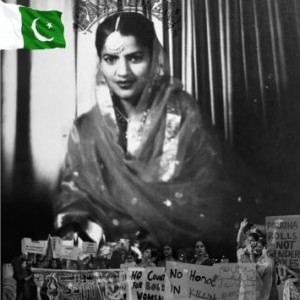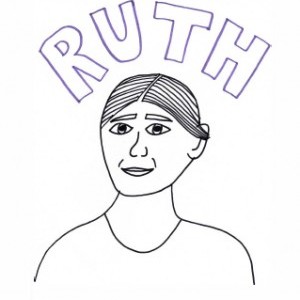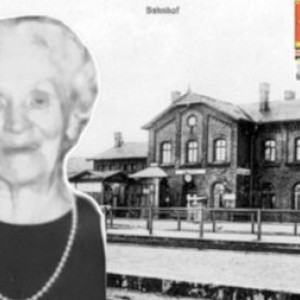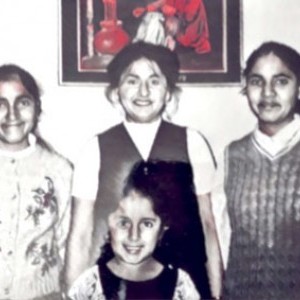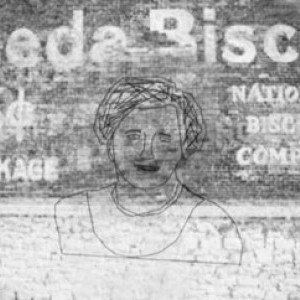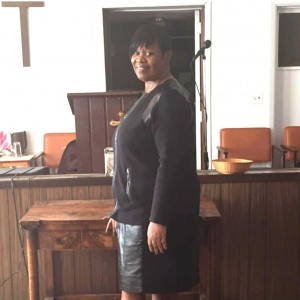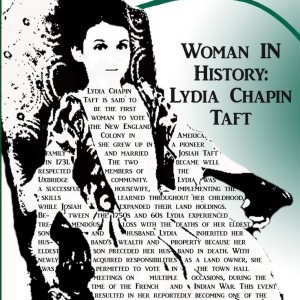Alexandra Wood
The Ellis School | Pittsburgh, PA | 11th Grade
Inspirational Family Member
Mama Yeager
The first woman in my family to vote was Laura “mama” (née Grasshoff) Yeager. She was born on September 28, 1887 in Fayette, TX and died on December 5, 1978 at age 91 in Texas City, TX. She had 16 siblings and she briefly lived in Germany (Rostock, Mecklenburg-Vorpommern, Freyburg, Saxony-Anhalt, and Biestow, Mecklenburg-Vorpommern) between 1896 and 1897 when she was about 10 years old. There, two of her brothers were born, one of which died in Germany in 1897.
When she was about 13, it is said that she would eagerly read the daily news hoping to hear more about Dr. Barnum Brown’s fossil discoveries and achievements. She moved to Schulenburg, TX sometime between 1910 and 1918 to open the only mercantile store near Schulenburg. Interestingly, she and her sister were the first people to own and drive a Ford model T in Schulenburg, even before the men of the town. She moved to Texas City, TX around 1920, and as soon as women received the right to vote, she voted. Mama Yeager was incredibly independent according to family stories, and she never let anyone talk down to her or make her do something against her will. She didn’t even get married until she was 35 in 1922, which was quite scandalous for her time and went against the societal expectations of her time. Her husband was Henry Yeager. She was incredibly eager for women to vote, and was a supporter of the Women’s Suffrage Movement and its Texas chapters. It is believed that she was a member of her local chapters.
From family stories and recorded data, it is safe to assume that mama Yeager was incredibly eager for women to vote and supportive of as many women voting as possible. Mama Yeager had two daughters whom she encouraged to actively exercise their constitutional rights. She was the head and matriarch of her family until she died in 1978. I hope to have the courage and fortitude that mama Yeager did when I vote for the first time in 2020. She defied societal conventions and wasn’t afraid to do what people told her women shouldn’t do, and she is an incredibly important role model to me. She was a thoroughly modern woman.
Historical Figure I Admire
Jeannette Rankin
Jeannette Rankin was elected to The House of Representatives in 1916 as a Representative of Montana. Upon her election, she noted “I may be the first woman member of Congress, but I won’t be the last.”1 Being the first woman ever to be elected to Congress, she was making history and predicting the future. But how did she get there?
Rankin was born in Missoula, Montana in 1880. Growing up, she worked on her father’s ranch, which instilled an ethic of hard work and dedication into her.2 But, this is also when she came into her own as a suffragist. She saw women working just as hard as the men on the ranches and farms in Montana, yet they were not treated as equal citizens under the law. She felt this was unjust, and carried this belief with her throughout her life.3Rankin graduated from the University of Montana (then Montana State University) in 1902, and went on to attend the Columbia University School of Social Work (then the New York School of Philanthropy). After working as a social worker—which influenced her later championing of protections for the working classes—in Spokane, Washington, Rankin entered the University of Washington in Seattle. While there, she officially joined the Women’s Suffrage movement. Rankin gained experience as an official lobbyist and campaigner for NAWSA (the National American Woman Suffrage Association) and became an astute public speaker and organizer, helping women gain the right to vote in 1910 and 1914 in Washington and Montana respectively.4 It was these skills and successes that helped her campaign for a seat in the House in 1916 as a representative of Montana.
Rankin’s influence and contributions as a suffragist, and the novelty of a woman running for election were contributing factors to her successful election as a representative. Rankin was elected as a progressive, planning to push working women’s and workers’ rights if and when she was elected. Social welfare issues were a large part of her campaign and political work. Rankin was also a devoted pacifist, and when Congress was called to vote on the United States’ entry into World War I, she voted no. Rankin stated “I wish to stand for my country, but I cannot vote for war”.5Rankin continued to work towards progressive social causes in Congress, including workers rights and women’s suffrage. She attempted to secure protections for workers after “The Speculator Mine Disaster” in Butte, MT left over 100 miners dead.6 Unfortunately, her pleas in Congress were ignored. Rankin opened congressional debate over granting universal suffrage to women in 1918, which passed in the House but failed in the Senate.7 This trial run provided the basis for the Nineteenth Amendment being successful. Rankin went on to run for the Senate when her term ended, but finished third in the election. After her run, Rankin continued to give speeches around the country for progressive social causes and peace.8
Rankin was again elected to the House in 1940, but was forced to be the dissenting opinion due to her pacifism. When Congress voted on entry into World War II, Rankin was the only dissenting vote. This made many resent her and view her as unpatriotic, but she had simply remained true to her ideals.9 Even though her political career had been ruined, when asked later if she regretted her decision, she said “Never. If you’re against war, you’re against war regardless of what happens”. 10 Rankin was an inspirational figure for the later generations of feminists and pacifists, and remains a legendary figure today.
SOURCES +
What the Project Means to Me
Over the course of researching Jeannette Rankin and my own great-great-grandmother, I have begun to comprehend the importance of voting and exercising one’s civil duties and rights. It all started when I visited the state capitol of Minnesota last Summer and discovered a statue of Jeannette Rankin. At first, I didn’t know who she was or what she had done, but my curiosity was lit. I later learned through independent research and my history class that not only was she groundbreaking when she ran for political office in the 1910’s, but she was incredibly courageous and loyal, and someone who refused to stray from their principles. I admire the guts it took to run for a political position as a woman in a time you yourself were not allowed to vote, in the hopes of having women’s voices heard before they were ever listened to. The drive and yearning behind such actions are inspiring. Jeannette Rankin’s courage to explore uncharted territory and remain loyal to her pacifist principles, even when they inspired negativity from others is truly incredible. She was willing to face an angry mob to vote for peace when the US was about to enter WWII. I also found the experience of researching my great-great-grandmother to be incredibly satisfying, fulfilling, and inspiring. She was a woman who was unafraid to defy societal conventions and continue forward despite their scrutiny. It is due to women like Jeannette Rankin and my great-great-grandmother advocating for equal civil rights and their right to vote that I can look forward to voting when I become an adult. If I were to not vote, I would be throwing away the voice that they fought tooth and nail to give to me. Voting is immensely important today because it gives everyone a voice and impact on their country’s government.
Explore the Archive
More From This Class
Click on the thumbnails below to view each student's work.Deadline Extended
There's still time to join Women Leading the Way.
Become a part of our storytelling archive. Enroll your class today.
Join the Project




